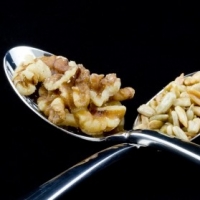Lose Weight > Weight Loss Tips > Weight Loss Articles > You Dont Need To Exercise To Lose Weight Or Do You?
You Dont Need To Exercise To Lose Weight Or Do You?
Unfortunately, what the report fails to mention is what the participants of the study did for exercise. Apparently to most people exercise means steady-state aerobic training because that is the type of exercise used in the study, "Effect of calorie restriction with or without exercise on body composition and fat distribution." So what the study did prove was that steady-state cardio exercise is equivalent to dieting for weight-loss.
I agree steady state aerobic exercise is not very helpful in fat-loss or muscle growth. So the study is really no big surprise. But the interpretation of the study does not specify the type of exercise and is very misleading. The suggestion is that all exercise is created equal which is absolutely wrong. The type of exercise is critical to losing fat.
Another study in Metabolism (1994 Jul;43(7):814-8), "Impact of exercise intensity on body fatness and skeletal muscle metabolism" demonstrated that high intensity interval training exercise created a 9 time greater loss in subcutaneous fat than the steady state cardio group.
That's nine times, that means a 15 minute interval training workout creates more fat loss than a two hour steady state cardio workout out. Which workout would you rather do? This happens because high intensity exercise causes your body to burn excess calories for hours after the exercise session. On the other hand, steady state cardio just allows you to become more and more efficient at burning calories so you burn less and less each time for the same effort.
The Journal of Clinical Endocrinology Metabolism study even mentions that high intensity exercise can have a greater effect on fat loss, insulin sensitivity and cholesterol profiles than lower intensity exercise. Why didn't the report mention this?
Then of course, any legitimate weight loss program must include weight training. While the participants of this recent study did lose some muscle mass, a study in the American Journal of Clinical Nutrition (1993 Oct;58(4):561-5), "Muscle hypertrophy with large-scale weight loss and resistance training" demonstrates that even with extremely low calorie intake resistance training still causes an increase in muscle mass.
The report states that the one of the authors of the study, Ravussin, has published other studies that indicate that exercise does not increase muscle mass that increases weight loss. Well, here we are with what exercise means again. I agree, steady state aerobic exercise does not increase muscle mass. There is no question that resistance training does increase muscle mass.
Oddly the report states, "And their carefully controlled study added to the evidence that adding muscle mass does not somehow boost metabolism and help dieters take off even more weight." Since both groups lost a small amount of muscle mass, this study could not possibly have come to this conclusion. Additionally, muscle is metabolically active tissue, many chemical processes are occurring inside muscle tissue and muscle creates movement, these things require energy or calories. Little happens inside a fat cell, it just stores fat. It is estimated that for every additional pound of muscle your body has, you burn an additional 50 calories per day.
So while you could lose weight through dieting alone or even dieting and steady state cardio, why would you? You can lose significantly more fat, faster by incorporating interval training and a resistance training program along with your reduced calorie diet.
Steady state cardio does have other benefits. All exercise is good for your health and disease prevention or reduction. Plus if you love to run, run. Enjoyment is a perfectly legitimate reason to something.
Related Articles
-
Shake Your Booty: Shaking Things Up With Brazilian Dance
Brazilian dance is a great way to get moving and learn how to shak
-
Best Diet of the Decade - See Which Diet Has Thousands Burning Fat Quickly, Easily, & Permanently!
The best diet of the decade would have to be one of those popular fad
-
The Fastest Way To Lose Weight - Can Fad Diets Help You Lose Weight Faster?
Enough is enough for those fitness buffs whove gone through the yo-yo
-
Learn How to Lose Weight With Great Weight Loss Tips
It is not hard to lose weight when you put your mind to it. One of the
-
Losing Abdominal Fat - Three Things You Need To Know Before You Start
Its a sad fact that, as we age, many of us find ourselves carrying an
-
Things to Know before Applying for Different Types of Insurance Quotes
- DON'T MISS
- Curb Your Hunger and Lose More Than 10 Pounds
- Muscle Building And Fat Burning Workouts
- Natural Therapies for Fat Loss
- Would You Buy Dietrine Carb Blocker For Faster Weight Loss?
- The Diet Solution Cheese
- Acupuncture Weight Loss? Plus 5 Step Weight Loss Plan
- The Two Fastest Weight Loss Workouts You Must Do To Lose Weight
- Fat Burning Diet - Learn Fat Burning Diet Secrets
- Fat Burning Furnace - High Speed Techniques for Long Term Weight Loss!
- Lose Weight Quick: Advice On Rapid Weight Loss




